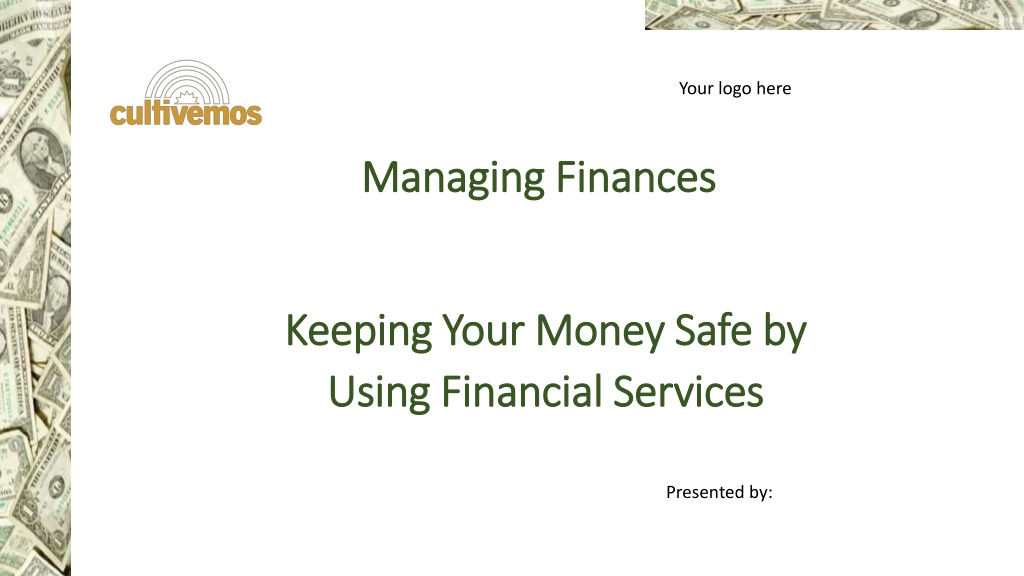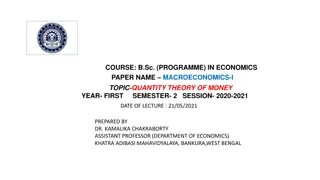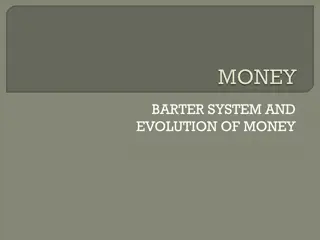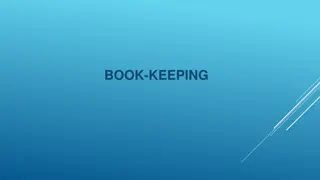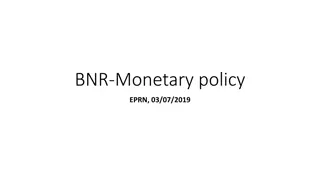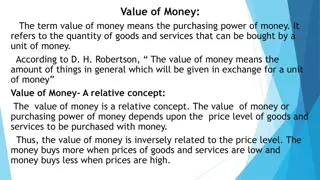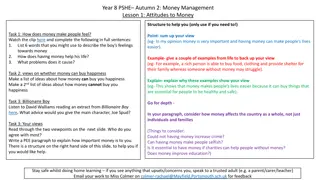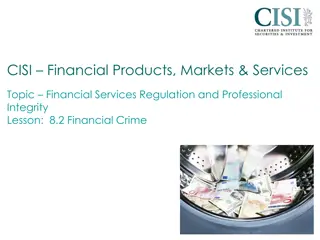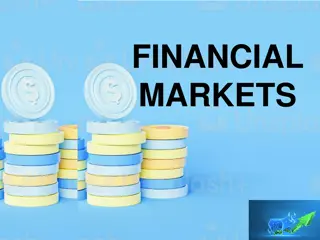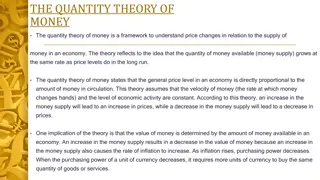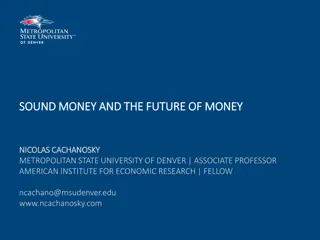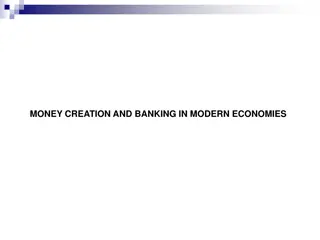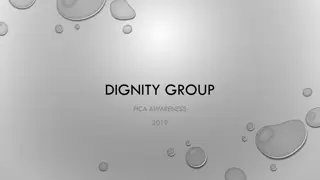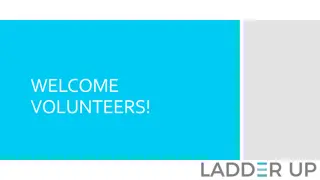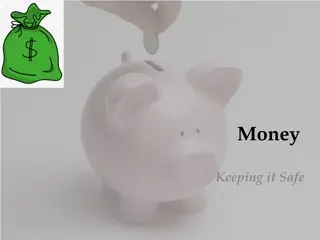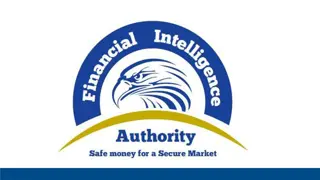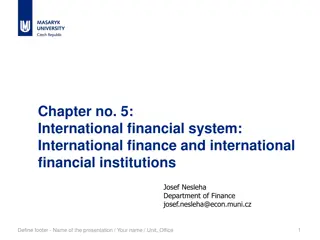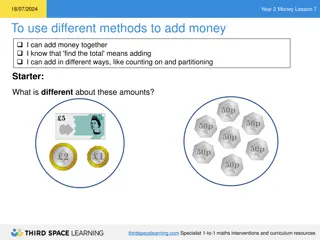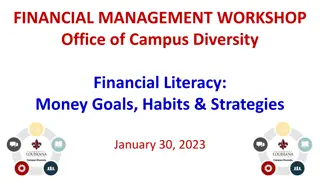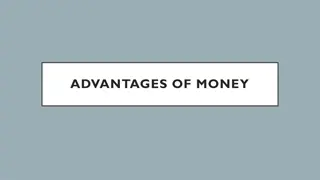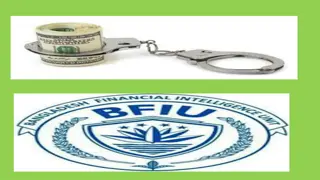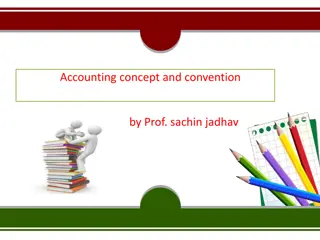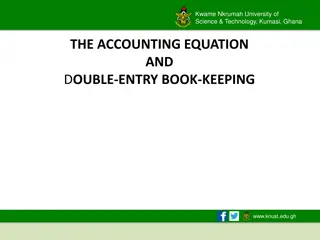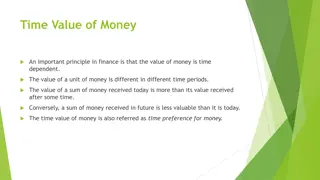Keeping Your Money Safe by using Financial Services
Learn how to manage your finances effectively by utilizing financial services offered by banks and credit unions in the U.S. Discover the benefits of savings and checking accounts, and make informed decisions on which type of account suits your financial needs.
Download Presentation

Please find below an Image/Link to download the presentation.
The content on the website is provided AS IS for your information and personal use only. It may not be sold, licensed, or shared on other websites without obtaining consent from the author. Download presentation by click this link. If you encounter any issues during the download, it is possible that the publisher has removed the file from their server.
E N D
Presentation Transcript
Your logo here Managing Finances Managing Finances Keeping Your Money Safe by Keeping Your Money Safe by Using Financial Services Using Financial Services Presented by:
Financial Services In the U.S. Financial Services In the U.S. Financial Services Options : Why Use Financial Services? Banks and credit unions are financial institutions that offer financial services. Money placed in these institutions are safe because only you or designated people on the accounts can access the money. The money is also guaranteed by the US Government. Financial services offered by these institutions include savings and checking accounts as well as loans and credit cards You may not feel safe carrying money around You may be concerned about the safety of your money wherever it is located Offer ways for you to manage and access your money Provide an opportunity to earn interest on your money
Should I Have a Checking, a Should I Have a Checking, a Savings Account or Both? Savings Account or Both? Savings Accounts Checking Accounts Deposit your money Helps you manage your money Easily access your money by using: A debit card Online payment Mobile payment Paper check Withdrawing cash through ATM Deposit your money Helps you save your money for periodic expenses and to set aside money to meet financial goals Helps you grow your money though interest (the bank pays you to keep it in the account) Access your money at any time
How do I Decide Which Type How do I Decide Which Type of Account to Have? of Account to Have? Some farmworkers have both types of accounts One for saving money The other for using their money for expenses and paying bills Your bank or credit union provides a record of your transactions Monitoring this information helps you manage your money transactions The U.S. federal government insures money that is put into a bank or credit union
How Do I Decide Which Type of How Do I Decide Which Type of Account to Have? Account to Have? How Will You Use Your Money? for saving money for paying for your purchases and bills for sending money to family overseas or your home country You may want to have both account if you have all both a savings and checking all these needs.
What do I Need to Do to Work With a Bank or Credit Union? An ID number can be a social security number (SSN) or an Individual Taxpayer Identification Number (ITIN) Some institutions will accept a passport number and the country of issuance an alien identification card number other government-issued I.D. number When you open an account you become a customer (for a bank) or a member (for the credit union) The bank or credit union will need to: verify your name date of birth address I.D. number Talk to your employer about identification; they must complete forms to provide you with a paycheck.
Questions to Ask Before You Open an Account Questions to Ask Before You Open an Account Fees Deposits Some banks/credit unions offer free accounts, while others charge fees. Are there Monthly Fees or Service Charges if you don t meet the Minimum Balance requirement on the accounts? Are there fees for accessing ATMs or for using Online/Mobile Banking? Is there a fee for using your debit card outside of the U.S.? If so, how much is charged and when is it charged? Ask what the options are for making a deposit Most employers will be able to set up a direct deposit so your paycheck goes into your checking or savings account If not, you ll have to travel to the bank/credit union to make the deposit Does the institution have mobile banking? Does the bank offer mobile deposits via your phone and their app?
Meet Dani Meet Dani - - A Case Study A Case Study Dani came to work in the United States and now has a job as a farmworker. Dani does not know what to do with the cash they have from their paycheck. Dani sends some of their money back home to the family but still has cash to keep with them to pay for expenses. Dani heard about other workers having money stolen from them and is worried that something might happen to their cash
Meet Dani Meet Dani - - A Case Study A Case Study A friend, Juan, shares that Dani can open a bank account even if he/she doesn t have a social security number. Juan has been in the U.S for a while and suggests that Dani thinks about how they want to use their money, what services they would like to use, and what type of account is wanted. Juan helps Dani decide that accessing money whenever it is needed would be helpful. Dani wants to save some money for emergencies and for traveling home to visit family and to transfer money home easily. Dani want to keep as much money and doesn t want to pay a lot in fees. Juan helps Dani make a list of important things they want from their bank account and to compare information from two banks in town.
Comparing the Two Financial Institutions Comparing the Two Financial Institutions
What Does Dani Decide? What Does Dani Decide? Dani decides to open a savings and checking account with State Bank because the money would earn more interest and there are fewer fees. Dani used a passport and government I.D. to open the accounts. Dani uses the debit card from having a checking account to pay for groceries, buy things online and get cash from the bank s ATM when needed. Dani is glad to have opened a saving account. The money is safe and can be accessed it when needed. Dani s employer helped to set up a direct deposit to put some money in both accounts each month. This has really helped to save money for later use. Also having these accounts saved money on transfer fees when sending money to their home country.
Finding the Right Financial Services Finding the Right Financial Services- - Bank or Credit Union Bank or Credit Union Now it is your turn to find the right bank or credit union to provide you with a bank account and the tools you need to manage your money safely. 1. Use this chart to compare two different banks or credit unions. 2. Use the criteria in the chart and add others that you think are important. 3. Call, visit or do an internet search for the bank/credit union to get the information you need. 4. Once you find out the information about each one, choose the bank or credit union to help you reach your financial goals. 5. Based on this information, which bank or credit union will you choose?
The Right Financial Services The Right Financial Services
Todays We Reviewed: Today s We Reviewed: Important words to know about financial institutions and accounts in the U.S. Understanding banking institutions like banks and credit unions Understanding checking accounts and savings accounts as tools to help manage your money and keep it safe Learning about how to choose a financial institution and account that best suits your needs and goals. What questions do you have?
Thank you for attending our program Thank you for attending our program Please use the evaluation tool we provided to help us know how well we did in providing you information.
Resources Farm Aid Call 617-354-2922 from 9 am to 5 pm eastern; they have Spanish speaking personnel Cooperative Extension in your county go to https://www.uaex.uada.edu/about-extension/united-states- extension-offices.aspx and type in your state and county to find your local office. Cultivemos - https://www.youngfarmers.org/cultivemos/ Consumer Financial Protection Bureau lots of information about banking, credit, and financial management https://www.consumerfinance.gov/
Additional questions? Insert your contact information here
________________________________________________________________________________________ Developed by Maria Pippidis, Family and Consumer Science Extension Educator, University of Delaware Cooperative Extension, Sheila Marshman, Associate Professor, SUNY Morrisville, and Scarlet Newman, a student from SUNY Morrisville. This work is licensed under the Creative Commons Attribution-NonCommercial- NoDerivatives 4.0 International License. To view a copy of this license, visit http://creativecommons.org/licenses/by-nc-nd/4.0/. You must provide attribution if you use these materials, and you may use them for educational purposes only. You may not sell or amend these materials without express permission of the authors. This work was funding through the Northeast Farm and Ranch Stress Assistance Network grant coordinated by the National Young Farmers Coalition. This work is supported by the Farm and Ranch Stress Assistance Network (FRSAN) project, grant no. 2020-70028-32729 from the U.S. Department of Agriculture, National Institute of Food and Agriculture. Any opinions, findings, conclusions, or recommendations expressed in this publication are those of the author(s) and should not be construed to represent any official USDA or U.S. Government determination or policy.
